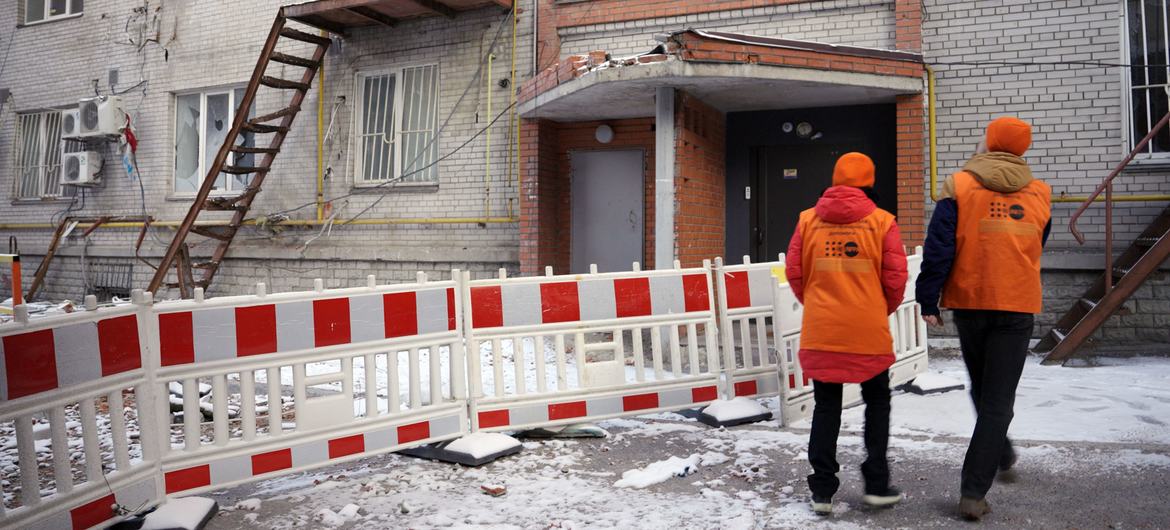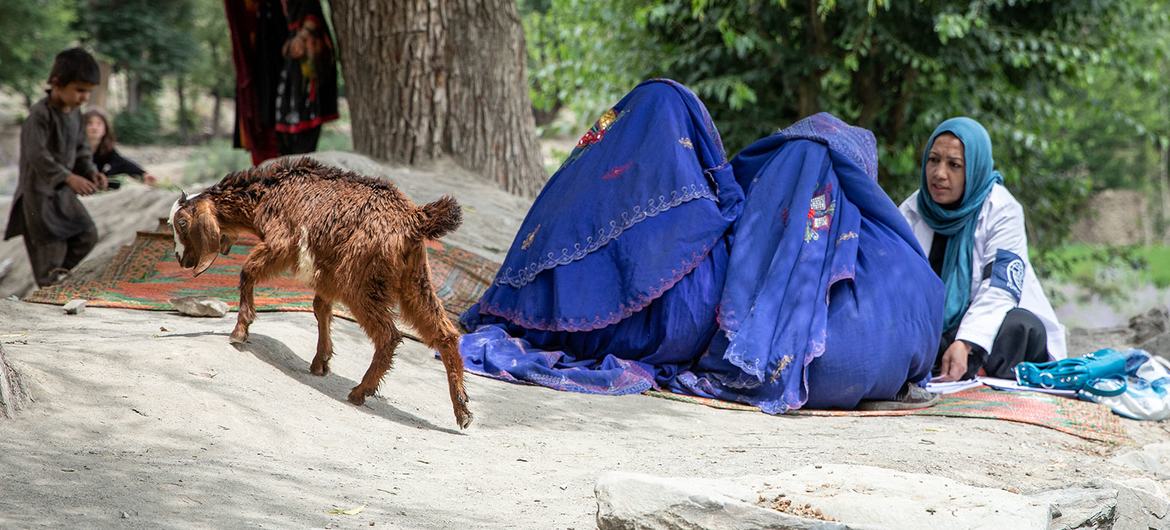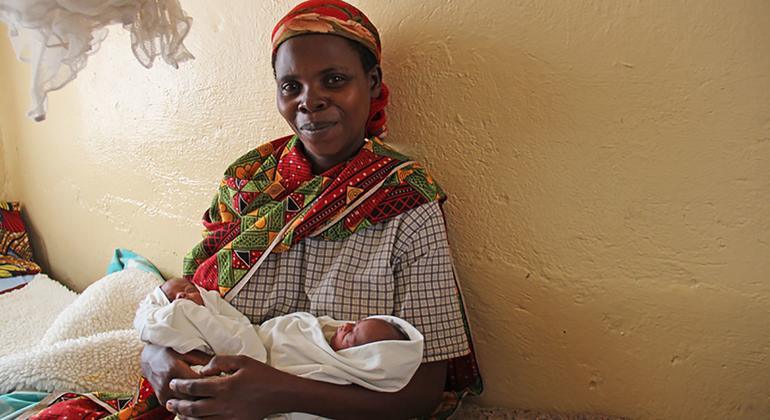Near 300,000 women continue to die during pregnancy or childbirth each year. More than two million babies die in their first month of life and around two million more died, explains the World Health Organization (WHO) which launches a one-year campaign on maternal and newborn health.
The data is added to a preventable death every seven seconds, according to the United Nations Health Agency.
THE Healthy beginnings, hopeful future The campaign is Ask governments and decision-makers of health policy to increase efforts to end maternal and avoidable newbornsAnd prioritize health and well-term well-being women.
Help every woman and each baby survive and prosper
Thanks to a series of strategic actions, which aims not only to save lives but to ensure that mothers and infants thrive. In collaboration with partners, he will focus on the empowerment of health professionals and the sharing of crucial information on healthy pregnancies, safe delivery and postnatal care.
Listen to women
Access to high -quality and compassionate care is essential for women and families around the world, which underlines. Health systems must evolve to respond to a wide range of health problems, including obstetric complications, mental health problems, non -transmitted diseases and family planning – Ensure that the needs of women are met before, during and after childbirth.
Girls affected by the current conflict in Gaza receive a set of care and protection distributed by UNICEF.
Women in war areas
At the same time, the proportion of Women and girls caught in conflict areas have skyrocketed in the past year, women now representing 40% of all civilian people in armed conflicts.
Today, more than 600 million women and girls live in areas affected by violence – an alarming increase of 50% since 2017.
While the conflict intensifies around the world, women and girls have a heavy mental health toll. From Afghanistan and Gaza to Georgia and Ukraine, millions of people are struggling with post-traumatic stress disorder (SSPT), anxiety, depression and trauma, with limited access to support and care.
Around One in five people affected by a humanitarian crisis will develop long -term mental health problems. Despite this, only 2% of people in need receive the care they need. Mental health funding worldwide represents between one and two percent of health expenses.
Stark set on mental health
The gap between high -income and low -income countries in mental health services is striking. In rich countries, there are more than 70 mental health agents per 100,000 people. On the other hand, in low -income countries, this number falls within one.
As conflicts train, the number of women affected continues to increase, making this crisis even more urgent. The United Nations Sex Equality Agency, the UN Women, spoke to women in Afghanistan, Gaza, Georgia and Ukraine to understand how these conflicts attach a mental health crisis.

UNFPA’s mobile psychosocial support teams travel across Ukraine, including on the front line, offering immediate emergency interventions as well as access to longer -term assistance.
Women in Gaza are trapped in trauma
In Gaza, incessant bombings, displacement and deprivation have created a humanitarian disaster. Living under siege and the constant threat of violence, women and girls are faced with levels of fear, trauma and extreme exhaustion.
UN women ‘data show that 75% feel regular depression, 62% cannot sleep and 65% suffer from nightmares and anxiety – most are left to do alone.
“My mental and psychological health suffers,” said a 27 -year -old pregnant mother from Khan Younis. “Sometimes I go to the bathroom just to cry and cry until I feel better.”
Women not only deal with their own trauma – they also try to take care of their children.
“I did not prioritize my health because I am the main dispenser of care for my children, assuming the roles of the father and the mother,” added the 27 -year -old mother.
Afghanistan: women erased from public life
In Afghanistan, the Taliban’s return brought an overwhelming blow to women’s rights and mental health. Alison Davidian, representative of the country of UN women, warns that almost four years of Taliban decrees have “eviscerated” the autonomy of women.
Without women in leadership roles and 98% report no influence on local decisions, many feel trapped in a life of isolation and despair.
“Three years ago, an Afghan woman could present himself to the presidency. Now she will not even be able to decide when buying grocery products, ”explains Davidian. The result is an overwhelming psychological distress, with 68% of women in Afghanistan reporting their mental health as “bad” or “very bad”.

An IOME Mental and Psychosocial Support Advisor leads to women in women in the province of Paktika, Afghanistan.
Georgia: use of upward antidepressants
In Georgia, displacement and continuous conflicts have left many women without access to adequate mental health care. About 200,000 people are moved internally, with almost 40% living in shelters in disastrous conditions.
Mental health problems are widespread, with 23% suffering from SSPT, 10% depression and 9% dealing with anxiety. However, only about a third of affected people asked for care.
“We have seen a sharp increase in the use of antidepressants, especially in areas with a large number of displaced people,” said Elene Rusetskaia of the women’s information center. “The mental health problem is very serious, especially in children.”
Ukraine: domestic violence and depression fly away in the middle of the war
In Ukraine, the war resulting from the invasion of Russia pushed the mental health of women in crisis. Sex -based violence has increased by 36% since 2022, and women provide more unpaid care – up to 56 hours per week. Forty-two percent are now at risk of depression, while 23% say they need advice.
Moved women, including many refugees, face some of the worst mental health challenges, with limited access to support services.
A recent survey of the International Migration Organization (IOM) revealed that 53% of people displaced internally in Ukraine suffer from depression, but assistance remains rare.
In response, the UN Women provided protection, legal aid and psychosocial support to more than 180,000 women and girls in Ukraine through the Peace and Humanitarian Women’s Fund.
Health care financing
The current humanitarian funding crisis, exacerbated by the decline in health spending in host countries, affects the scope and quality of public health And nutrition programs for refugees and host communities, said the United Nations Agency for Refugees, UNHCR.
In Jordan, 335,000 reproductive women are likely to lose essential maternal health. Without enough financing, prenatal care, safe delivery and newborn health services will disappear.
In Bangladesh, around one million Rohingyas refugees faced a serious health crisis due to the freeze, threatening access to essential medical services. In UNHCR -supported programs, more than 40,000 pregnant women may lose access to critical prenatal care, with 5,000 risk of delivering under dangerous conditions.
In Burundi, the suspension of nutrition programs in several camps means that thousands of refugee children under the age of five may not receive adequate treatment for malnutrition.
Necessity, not luxury
For women and girls in conflict areas, mental health care is a critical need, not a luxury. Restoring, dignity and survival depend on access to trauma care, advice and community services.
While conflicts continue to devastate communities, the need for mental health support becomes more urgent than ever. Countries must invest in mental health as the basis of the humanitarian response, especially in conflict circles, UN women, have stressed, calling on governments to listen – and to act.




